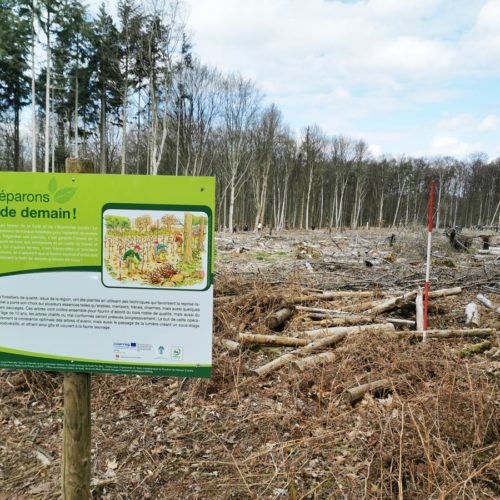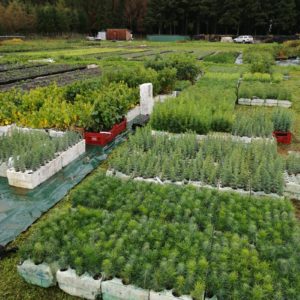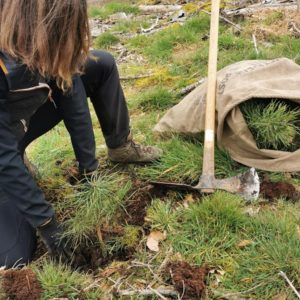A strategy for preparing the forest for the climate of tomorrow
The climate has always changed and both animal and plant species have adjusted to these changes by migrating to the North or South as the climate has warmed or cooled.
Today, however, changes to the climate are happening far too rapidly to enable species of tree to migrate sufficiently quickly. This means there is a risk of seeing whole populations of trees disappear in their native region because the climate no longer suits them.
In this instance, the role of foresters will be to imitate nature and speed up their work by artificially accelerating the speed at which trees can migrate. This is called assisted migration.

Two types of assisted migration
In practice, there are two types of assisted migration: the assisted migration of provenances and the assisted migration of species.

The assisted migration of provenances
This involves introducing a species that is already present in the area, but one that originates from the southern part of its distribution. For example, we speak of the assisted migration of provenances when a common beech tree is planted in Belgium (which is a species that occurs naturally in Belgium) that originates from a seed harvested in Italy or the South of France. The aim here is to introduce the drought-resistant genes that are found in these populations from the South and allow them to propagate among local populations. This involves enriching the genetic diversity of a local species to enable it to adjust better to the new climate. The species concerned by this type of migration as part of the Trees for Future project are the sessile oak, the beech, the small-leaf lime and, to a lesser extent, the pubescent oak because although it is native, it is still very rare here.

The assisted migration of species
This involves introducing a species that does not yet occur in Belgium, but which lives further to the South in climatic conditions similar to those expected here in the coming decades. For example, the assisted migration of species involves planting Mediterranean oaks in Belgium (Hungarian oak, hairy oak, pubescent oak), Mediterranean firs (Kefalonian fir, Bornmuller fir, etc.) or Mediterranean pines (maritime pine, Macedonian pine, Bosnian pine, etc.).







